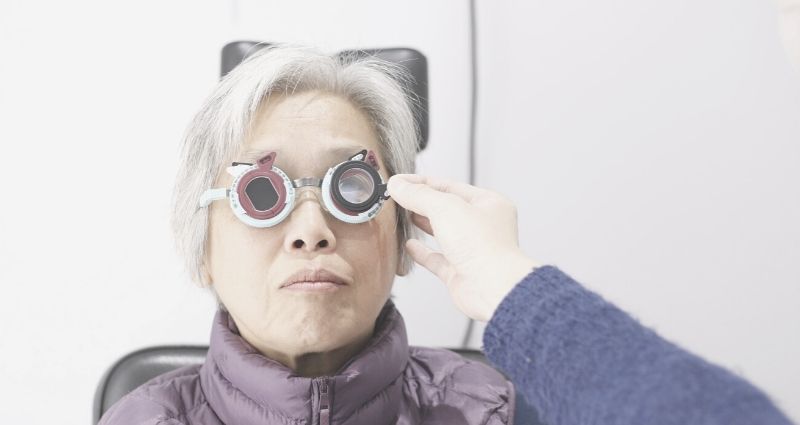Table of Contents
Are You A Woman Over 50 Considering Lasik Surgery?
We hear a lot about LASIK surgery and the wonderful clear vision that people enjoy after the procedure. Is LASIK after 50 a good decision? Deciding to have LASIK is a big step, and only you and your doctor can decide if it’s right for you. Should you get Lasik surgery after 50?
Like with any surgery, there are some risks and considerations associated with the procedure. Lasik is an elective surgery, which means it’s not necessary for your health. It can be helpful in improving vision and reducing eyestrain but should only be considered after consulting with your doctor about the potential benefits and risks of this type of procedure.
LASIK is generally very effective in healthy post menopausal women, but there may be some specific requirements and extra considerations you should be aware of.
General Considerations and Recommendations for LASIK
Your doctor will assess your overall health as well as the health and general condition of your eyes before agreeing to perform LASIK. While the procedure is fast, simple and easily tolerated, healthy people respond better to most surgical procedures, even LASIK.
There are lots of questions to ask before deciding whether or not LASIK after 50 is a good idea:
- Is LASIK surgery painful?
- What happens during surgery?
- Is there a long recovery period?
- What does it cost?
- Can I have surgery on both eyes at the same time?
- Will I be awake during the surgery?
- What are the risks?
Are there requirements for LASIK surgery?
There are several things women need to consider before undergoing Lasik surgery including age, eye health history, occupation (some jobs require contact lenses), family history (if any), medications taken regularly (some may interfere with healing) and lifestyle factors such as smoking or drinking alcohol excessively. A thorough examination will help determine whether Lasik is right for you or if another treatment might work better. Be sure to discuss all options thoroughly with your doctor before making a decision about how best to address your eyesight issues.
In order to have LASIK after 50, your eyes must be stable and healthy. There are a few conditions that may either prevent you from being eligible for the surgery, or which may require post-surgery adjustment, such as reading glasses. These conditions include:
- Presbyopia
- Dry Eye
- Cataracts
- Glaucoma
Presbyopia
Most people develop a condition called presbyopia in their forties and fifties. Presbyopia is a loss of elasticity in the eye’s lens that makes it hard to change focus quickly or to see nearby things clearly. You may first notice presbyopia when you try to read, sew or do any activity that requires seeing fine details up close. Generally, presbyopia is easily resolved with reading glasses or bifocals.
LASIK may hasten the onset or severity of presbyopia, but you can still have LASIK post menopause if all other conditions are right. You may decide to simply wear glasses after the procedure or use a contact lens in one eye to correct your near vision. There is also a way to perform LASIK so you use one eye for distance and the other for close work. Whenever you use or correct your eyes this way it is called monovision.
Dry Eye
Tears are necessary to keep the eye comfortable and irritation-free, but many women over fifty suffer from dry eye. LASIK can make dry eye worse. Your doctor will assess the moisture in your eyes before recommending or proceeding with LASIK. If you have even moderate dry eye, you may not be a good candidate for LASIK.
There is an alternative, however. If you have dry eye syndrome, you may still be a good candidate for surgical vision correction using either PRK ( Photorefractive Karatectomy) or RLE (Refractive Lens Exchange).
Cataracts
Cataracts are a common condition in which the lens of the eye becomes cloudy and obscures vision. Nearly everyone develops cataracts at some point as they age, although women who eat a healthy diet are less likely to form cataracts. When cataracts are advanced, the lens can be replaced with an artificial lens that restores vision using RLE. Some replacement lenses flex and adapt like a natural lens so you have clear vision at any distance while others are designed for distance or near vision.
If you will be undergoing RLE in the near future you may want to skip LASIK since the RLE process will correct your vision.
Glaucoma
Glaucoma is a serious but controllable condition believed to be caused by excess fluid pressure in the eye. If you have controlled glaucoma, you may still be able to have laser surgery, although probably not LASIK. LASIK incorporates the use of a device called a microkeratome, which can increase the pressure in the eye. You may be able to undergo PRK or RLE, or one of several other potential options. You should discuss the alternatives with your doctor.
The most important determinant of the success of getting LASIK after 50 is the skill and experience of your doctor. Learn more about how to find the right surgeon by reading this article from the Refractive Surgery Council. You should find a doctor you feel comfortable with and ask about his or her LASIK experience before making any decisions.
Winsome To Wisdom is a participant in the Amazon Services LLC Associates Program, an affiliate advertising program designed to provide a means for sites to earn advertising fees by advertising and linking to Amazon.com





